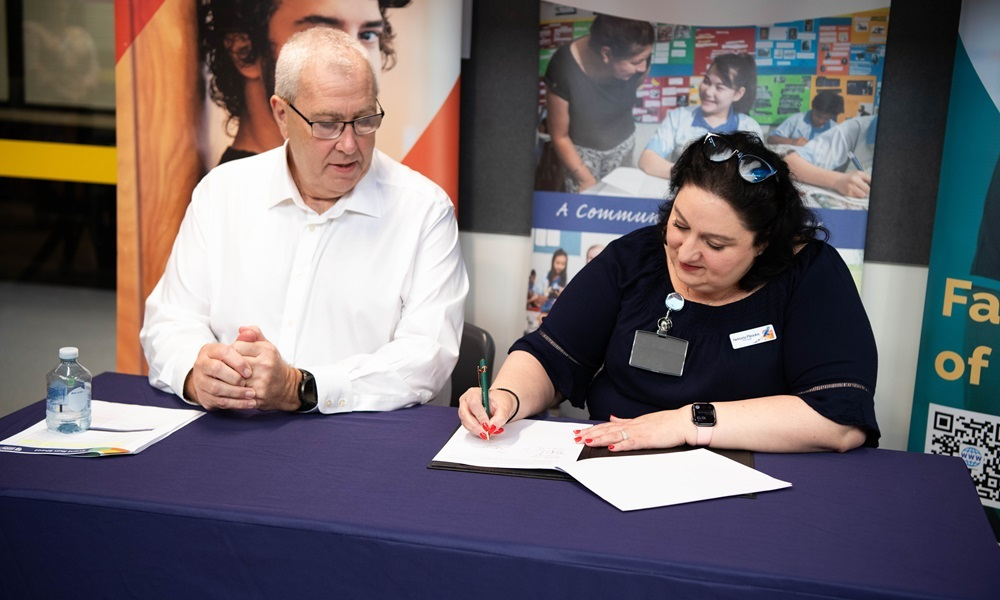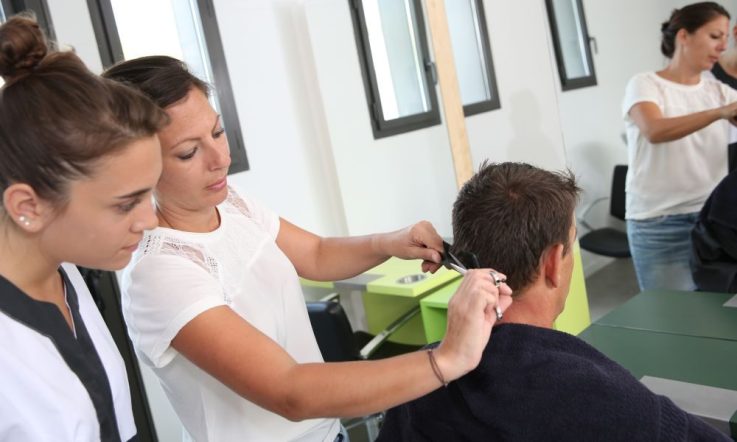A new partnership between Charles Darwin University (CDU) and Dripstone Middle School is supporting students’ health and wellbeing outcomes and bridging the gap between secondary and tertiary study. In today’s article we learn more about the initiative, including how it’s inspiring students to consider health-related careers in the Northern Territory, and a practical activity that aims to increase their confidence, accessibility and literacy with the Australian healthcare system.
The CDU Dripstone Health Academy is an exciting partnership between Dripstone Middle School in Darwin and Charles Darwin University (CDU) that is providing a unique opportunity for students to bridge the gap between secondary education and tertiary study, particularly in health and medical fields.
Principal Nektaria Pikoulos tells Teacher that partnering specifically with the health faculties at CDU is responding directly to the interests of Dripstone Middle School students. A contributing factor to the partnership coming about was in response to an external provider visiting the school to speak about working in the health field, and two-thirds of students volunteered to attend the session.
‘They pulled out a whole range of different things that the kids could practise on and equipment that they could look at; they gave demonstrations,’ Pikoulos recalls. ‘And you could hear a pin drop in the room when this was happening. So, that prompted me – the need is there. You can see the students are very interested in that direction.’
What followed was a conversation with Professor Dominic Upton, CDU Pro Vice-Chancellor, Faculty of Health, and in November last year a Memorandum of Understanding was signed. Staff and students from CDU and Dripstone Middle School have since been busy working together.
Practical health and wellbeing support
Did you know that in Australia, once a young person turns 14, their parents can no longer access their Medicare claims history or immunisation records? And, by age 15, they can apply for their own Medicare card. For these teens, learning to navigate the healthcare system in Australia can be a complicated undertaking.
The partnership has provided support in this area. The session ‘Introduction to the Australian Healthcare System' involved CDU students visiting the school to guide Dripstone students through the process of setting up their own myGov accounts. ‘It is such a small thing, but it's such a large thing in the scope of your own wellbeing,’ Pikoulos says.
Angela Sheedy, Course Coordinator of Health Science in CDU’s Faculty of Health says this myGov initiative has also allowed CDU students to fulfil their placement requirements. ‘This was a great opportunity to get these students to run a project for Dripstone Middle School,’ she tells Teacher. ‘And we focus that on the Australian healthcare system and actually helping students set up a myGov account. So, giving them some real-world skills.’
A taste of university
Future activities within the partnership will focus on bringing school students to the CDU campus to give them a taste of university life. It’s hoped these initiatives will help ease students’ nerves about attending university.
‘We just want to make sure that the students are gaining their confidence around that and really opening their eyes to what opportunities are out there at our doorstep,’ Pikoulos shares.
Activities will include information sessions, a walkthrough of the library and interactive sessions with 3D printing and an Anatomage Table (for studying anatomy). ‘It's an amazing piece of equipment. You can spend hours playing around with it,’ Sheedy explains. ‘So, really different interactive things that we'll be doing with the students when we bring them here.’
Looking ahead to the future
An important element of strong school-community partnerships is ensuring long-term sustainability. With Dripstone Middle School students showing interest in health-related careers, and the Northern Territory needing increased staff in this area, the partnership is certainly symbiotic.
‘What I'm seeing is our students are more engaged in understanding that the learning that they've been doing at school in Science and in Maths is linked to … what is ahead of them in the future in these courses. So, they're already making connections. And so, what these sessions are doing is they’re value-adding to the education that's already happening here. So, it's almost a natural link from one to the other,’ Pikoulos shares.
Sheedy agrees. ‘We really want to grow our own here in Darwin,’ she says. ‘We want them to see that they've got a really good university here in Darwin … so, just opening that door and bringing them in means they've got those connections with us.’
Are you working with tertiary institutions in your community to support students to know and understand their further study pathway options? If not, what would be the first steps you could take to open a dialogue? Which colleagues could best support you? What would you hope to achieve through working with a tertiary institution?



